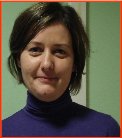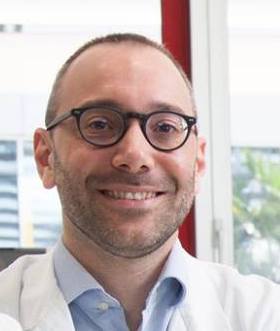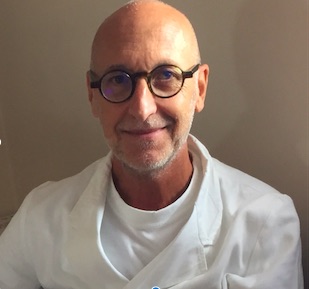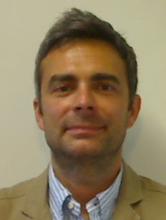Studying at the University of Verona
Here you can find information on the organisational aspects of the Programme, lecture timetables, learning activities and useful contact details for your time at the University, from enrolment to graduation.
Academic calendar
The academic calendar shows the deadlines and scheduled events that are relevant to students, teaching and technical-administrative staff of the University. Public holidays and University closures are also indicated. The academic year normally begins on 1 October each year and ends on 30 September of the following year.
Course calendar
The Academic Calendar sets out the degree programme lecture and exam timetables, as well as the relevant university closure dates..
| Period | From | To |
|---|---|---|
| 1 SEMESTRE PROFESSIONI SANITARIE | Oct 3, 2022 | Dec 23, 2022 |
| 1° e 2° semestre (corsi annuali) PROFESSIONI SANITARIE | Oct 3, 2022 | Sep 30, 2023 |
| LMSRPS - 2° ANNO - 1° SEMESTRE | Oct 10, 2022 | Feb 13, 2023 |
| LMSRPS - 1° ANNO - 1° SEMESTRE | Nov 21, 2022 | Mar 17, 2023 |
| 2 SEMESTRE PROFESSIONI SANITARIE | Jan 9, 2023 | Sep 30, 2023 |
| LMSRPS - 1° ANNO - 2° SEMESTRE | Apr 19, 2023 | Jun 27, 2023 |
| LMSRPS - 2° ANNO - 2° SEMESTRE | Apr 19, 2023 | Jun 27, 2023 |
Exam calendar
Exam dates and rounds are managed by the relevant Medicine Teaching and Student Services Unit.
To view all the exam sessions available, please use the Exam dashboard on ESSE3.
If you forgot your login details or have problems logging in, please contact the relevant IT HelpDesk, or check the login details recovery web page.
Should you have any doubts or questions, please check the Enrollment FAQs
Academic staff
 gianluca.veronesi@univr.it
gianluca.veronesi@univr.it
Study Plan
The Study Plan includes all modules, teaching and learning activities that each student will need to undertake during their time at the University.
Please select your Study Plan based on your enrollment year.
1° Year
| Modules | Credits | TAF | SSD |
|---|
2° Year activated in the A.Y. 2023/2024
| Modules | Credits | TAF | SSD |
|---|
| Modules | Credits | TAF | SSD |
|---|
| Modules | Credits | TAF | SSD |
|---|
Legend | Type of training activity (TTA)
TAF (Type of Educational Activity) All courses and activities are classified into different types of educational activities, indicated by a letter.
Research methodology applied to business processes (2023/2024)
Teaching code
4S006188
Credits
10
Coordinator
Language
Italian
Courses Single
Not AuthorizedThe teaching is organized as follows:
Learning objectives
The course aims to increase the knowledge and insights about the research methodology, identify qualitative and organizational research tools and methods, and implement the ability to analyze the dynamics of work processes in complex organizations critically. It also encourages problem-solving and decision-making skills between the individual, the workgroup, and the organization to overcome the organizational problems. SOCIOLOGY OF WORK AND COMMUNICATION PROCESSES At the end of the course, the student must (1) reflect in sociological terms on the changes that characterize the world of work, regarding organizational and communicative dimensions, especially in the health sector; (2) understand the nature, characteristics, and relationships of the working organizations within the current social context; (3) use the acquired knowledge to improve their behaviour as professionals in a context of complexity. In addition, the course aims to promote an understanding of the processes of job adjustment for the different actors involved and their relationships with the more general context and the ability to recognize the importance of organizational processes, especially communication and its related dynamics. Helpful in understanding the work environment in its cultural and ethical aspects, the course provides students with a 'toolbox' to deal with today's complexity and to reflect on individual professional actions, broaden views and develop personal judgment as well as communication and relationship skills in both the patient and the organizational context. MULTICULTURALISM AND LANGUAGE THEORIES. At the end of the course, the student must have a fundamental knowledge of Indo-European languages - social and language changes caused by immigration. To this end, cornerstone concepts of modern language science, including the discrepancy between major and minor languages, will be discussed. QUALITATIVE RESEARCH METHODOLOGY At the end of the course, the student must have a fundamental knowledge of the design and implementation of qualitative research projects to improve the professional environment. Moreover, at the end of the course, the student must (1) understand the essence of the field of qualitative research in health care settings and its guidelines, philosophical and methodological issues; (2) acquired the ability to implement and analyze qualitative research protocols in a health care setting, discovering strengths and weakness, and to understand the different possibilities available for the management and search of information. LOGIC AND THE PHILOSOPHY OF SCIENCE At the end of the course, the student must have basic knowledge of the fundamental gnoseological, methodological and epistemological problems of logic in health sciences and know-how to apply the logical method to the clinical reasoning in rehabilitation practice. BIOETHICS At the end of the course, the student must (1) have basic knowledge of the method and the underlying themes in bioethics; (2) understand the interconnections between ethics and professional deontology with particular regard to bioethical issues; (3) reflect independently on the ethically sensitive issues that could arise in clinical practice.
Prerequisites and basic notions
Although some basic concepts can be briefly re-proposed by each teacher, the knowledge of the basic notions of the disciplines characterizing the different modules is fundamental.
Bibliography
Criteria for the composition of the final grade
The final grade is expressed in 30/30 and represents the weighted average of the marks obtained in the various modules.
Career prospects
Module/Programme news
News for students
There you will find information, resources and services useful during your time at the University (Student’s exam record, your study plan on ESSE3, Distance Learning courses, university email account, office forms, administrative procedures, etc.). You can log into MyUnivr with your GIA login details: only in this way will you be able to receive notification of all the notices from your teachers and your secretariat via email and soon also via the Univr app.
Gestione carriere
Internships
Stage
in definizione
Orario lezioni
Documents
| Title | Info File |
|---|---|
|
|
pdf, it, 260 KB, 26/01/24 |
|
|
pdf, it, 164 KB, 24/04/24 |
|
|
pdf, it, 203 KB, 12/04/24 |
Student login and resources
Attività seminariali/a scelta dello studente
La Commissione Didattica organizza l'offerta di attività didattiche opzionali, realizzabili con lezioni, seminari, corsi interattivi a piccoli gruppi, tirocini fra i quali lo studente esercita la propria personale opzione, fino al conseguimento di un numero complessivo di 6 CFU.
Le attività formative a scelta dello studente si concludono con un esame, che, in quanto tale, concorre al completamento delle certificazioni di profitto requisito per accedere all'esame finale.
Il materiale didattico relativo alle suddette attività didattiche saranno messe a disposizione nello spazio moodle riservato allo stage.
Appelli d'esame
Potranno chiedere di fare l’esame di profitto o di laurea a distanza solo le studentesse e gli studenti in isolamento in quanto positivi al SARS-CoV-2. La richiesta dovrà essere fatta inviando al docente il modulo allegato
Documents
| Title | Info File |
|---|---|
|
|
pdf, it, 260 KB, 26/01/24 |
|
|
pdf, it, 160 KB, 18/03/24 |
|
|
pdf, it, 135 KB, 18/03/24 |
|
|
pdf, it, 185 KB, 18/01/23 |
|
|
octet-stream, it, 1299 KB, 31/01/23 |
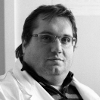
 +39 045 812 4678
+39 045 812 4678



